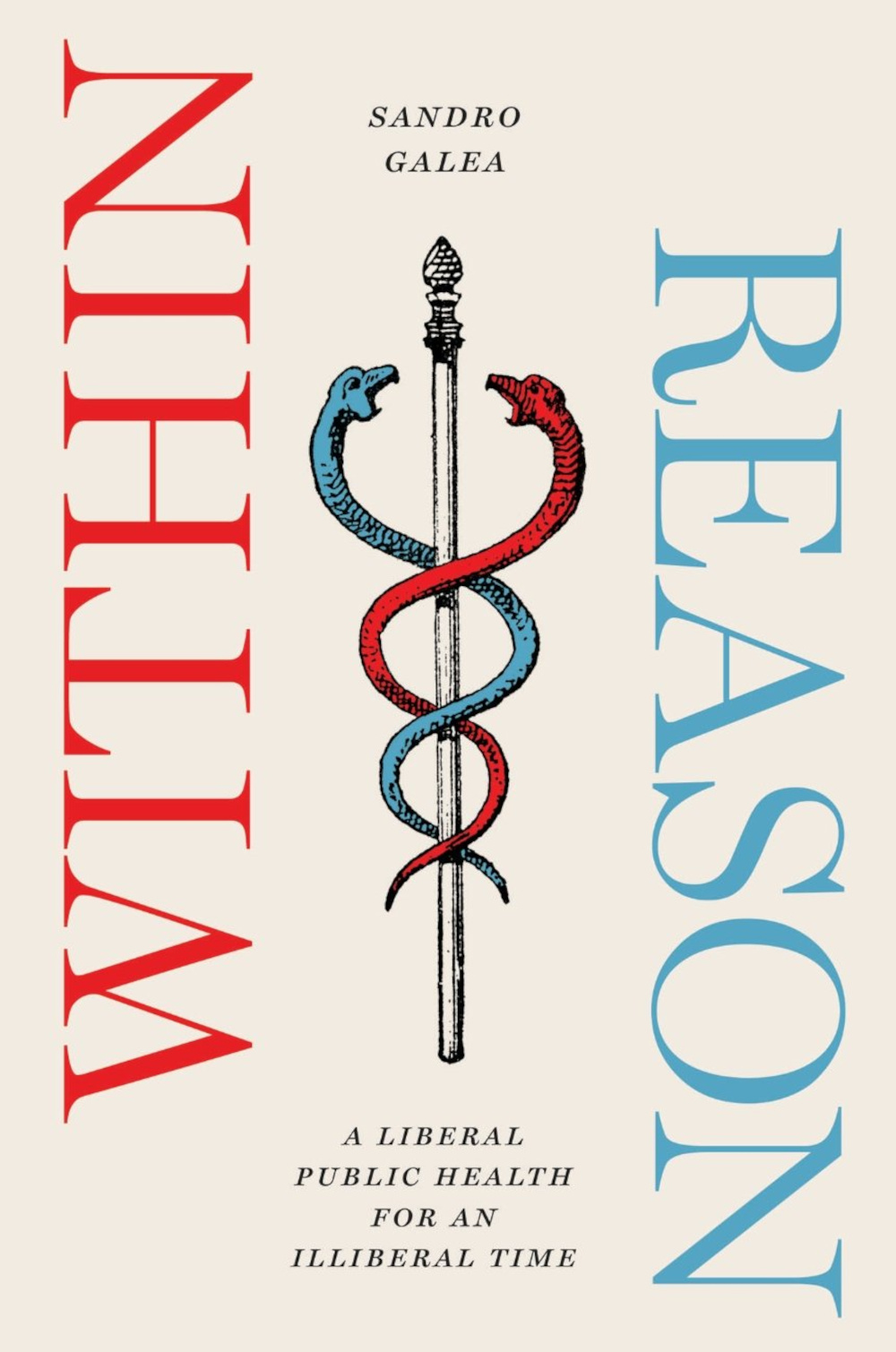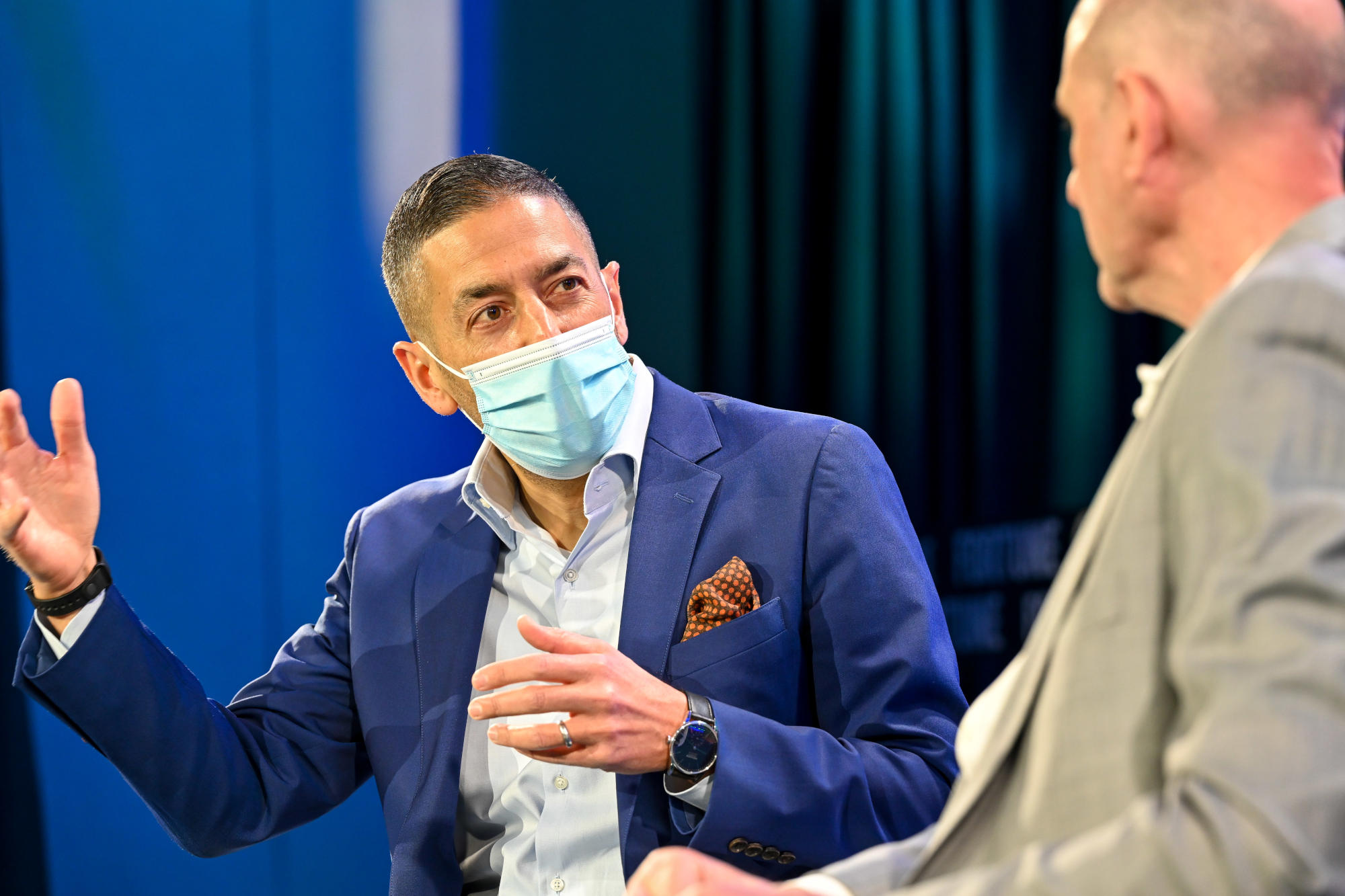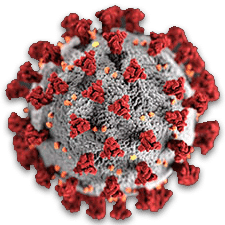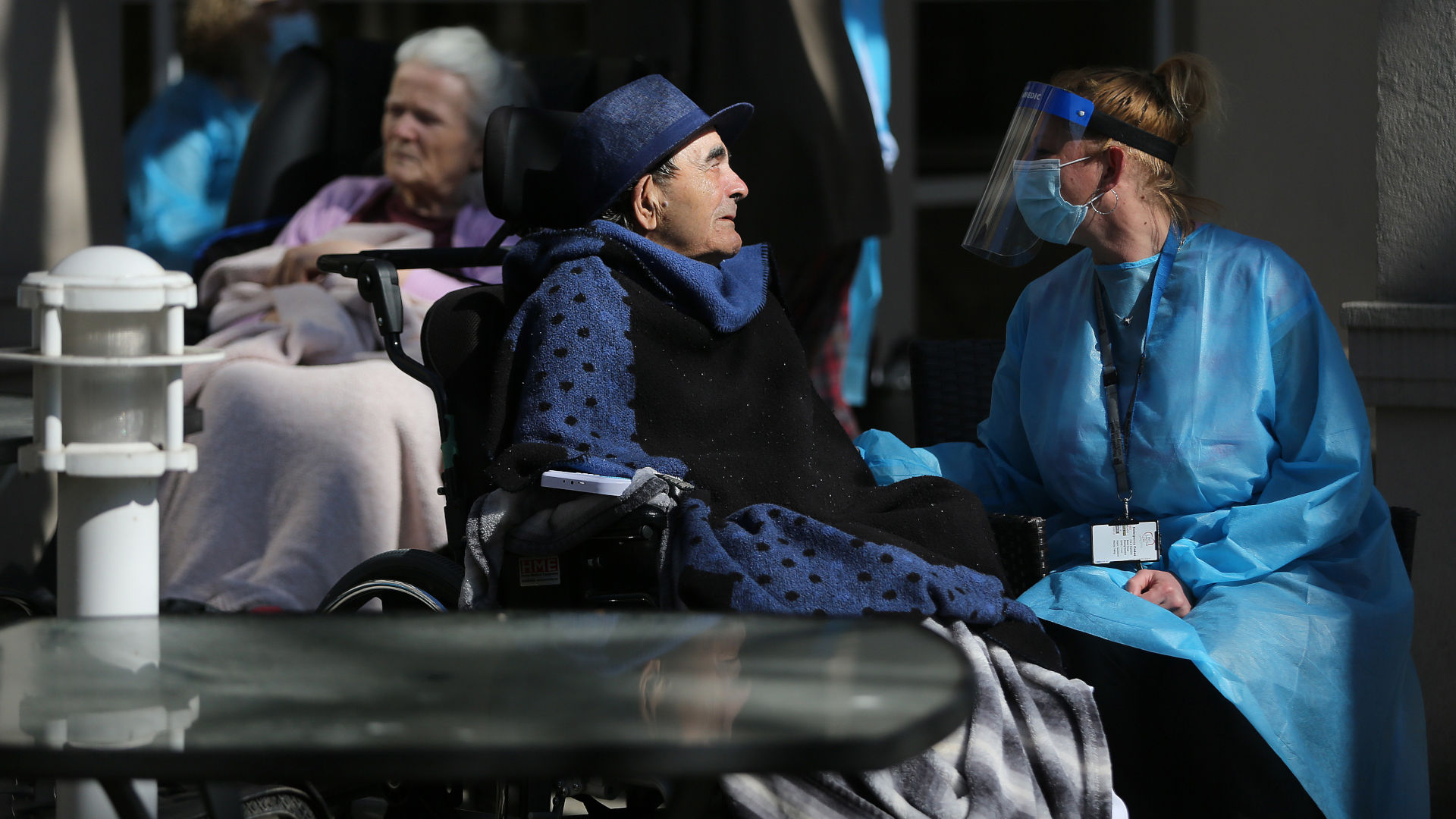When we were children, many of us were made to do things we didn’t want to do. Our parents would tell us to eat our vegetables, or they’d send us to bed early or make us visit the doctor and get shots. They justified these actions with words parents have used since time immemorial: “It’s for your own good.”
In some ways this phrase captures the essence of paternalism, which the Cambridge Dictionary defines as “thinking or behavior by people in authority that results in them making decisions for other people that, although they may be to those people’s advantage, prevent them from taking responsibility for their own lives.”

The accompanying article is excerpted and adapted from “Within Reason: A Liberal Public Heath for an Illiberal Time,” by Sandro Galea, published by the University of Chicago Press (304 pages). Reprinted with permission, © 2023 by the University of Chicago. All rights reserved.
Our parents’ choices for us as children were our first exposure to this concept. In infringing on our autonomy they acted out of love, with the goal of keeping us healthy and safe. They did so because, as children, we were not yet able to make wise choices for ourselves. Because we could not always accept that our parents truly had our best interests at heart, we often resisted their efforts.
This dynamic unfolds in much the same way at the level of populations. We see tension between public health recommendations and a public wary of a “nanny state” bent on meddling in their lives. I have written about this before, participating in a debate with Boston University emeritus professor Leonard Glantz about the role of paternalism in public health. In that exchange, I argued that paternalism can be a positive force supporting the health of populations, provided it is informed by pragmatism and moderation.
I still hold this view. However, the context has shifted. In embracing a pragmatic paternalism, public health is tasked with using its power responsibly, toward the common good. In recent years, I would argue, it has fallen short of this task. During Covid-19, at times we saw public health use its power arbitrarily, without regard for the data.
This was the case, for example, with lockdowns imposed even after vaccines and better treatments emerged, developments that should have radically altered our view of Covid-19 risk. I had some personal experience with this. In March 2021 my parents were under strict lockdown in a Toronto nursing home, despite having received the Covid vaccine along with all staff and residents at the facility. Their frustration echoed that of many in Canada and around the world who found themselves chafing at stringent public health measures that did not seem to be required by the data.
From parents coping with ongoing school closures to small businesses suffering loss owing to lockdowns, many felt the burden of restriction during the pandemic. This burden could at times feel heavy-handed and capriciously imposed. This was certainly true for my parents, whose continued isolation made little sense once vaccines were available.
It is perhaps ironic, then, that when we turned to politicians and public health authorities to justify these measures, we received answers that amounted to an echo of our parents all those years ago: “It’s for your own good.”
During Covid-19, at times we saw public health use its power arbitrarily, without regard for the data.
In public health, we support actions for the good of the populations we serve. Throughout the history of our field we have advocated for widespread hand washing, for redesigning cities to improve sanitation, for vaccination campaigns, for laws that restrict unhealthy behaviors like smoking and unsafe driving, and for changing cultural norms around a range of issues. These steps reflect “asks” of the public; we ask people to wash their hands, to put certain medicines into their bodies, and to consider new ways of thinking. And we tell them, “It’s for your own good.”
Public health measures do indeed, more often than not, support the common good, just as our parents’ efforts to get us kids to do what we didn’t want to do were in support of our own good. It’s also worth noting that not all public health “asks” are onerous. In time, many are barely even noticed. How often do we think about the fact that no one can smoke in our office building, or that we must wear a seat belt, or that we were vaccinated as children? In most cases the answer is “rarely.”
Yet all these features of how we live now were at one time introduced to a world in which they were not the norm, advocated for by public health acting on behalf of the public good.
To be clear, there is nothing wrong with advocating for something for the good of a person or population. Nor is “for your own good” always an inadequate response to why a given measure is necessary. And as I’ve noted, I’ve argued in favor of paternalism when it’s used in the right circumstances and truly supports the public good. Yet there are times when our belief that we are acting on behalf of the good leads us to embrace measures that are counterproductive to the work of promoting health.
We ask people to wash their hands, to put certain medicines into their bodies, and to consider new ways of thinking. And we tell them, “It’s for your own good.”
During the Covid-19 period, I was struck not just that continued isolation for my parents and their peers made little sense in light of what we knew about the risk of Covid-19 in a vaccinated population, but also that it was clearly harming their health. Isolation is difficult for anyone; it is particularly hard for older adults for whom time with loved ones is uniquely precious. Efforts meant to safeguard the health of older adults were, in practice, robbing them of the chance to make risk calculations for themselves.
In keeping them sealed off even after they had been vaccinated, they were denied the opportunity to measure the diminished, but still present, risk of Covid-19 against the certain harm of lost time with family and friends. This implied a lack of confidence in their capacity to make the right choices for their health, overriding the autonomy of competent people “for their own good.”
It also reflected public health’s unwillingness to grapple with the trade-offs inherent in lockdown and isolation policies. Had we been better at weighing these trade-offs, we might have been better able to address the reality of what isolation cost older adults and the broader question of just how much we are collectively willing to give up in the name of safety — a question that is always implicit when we discuss paternalism in public health.
When our parents acted on our behalf, they did so because we weren’t in a position to act for ourselves — we weren’t yet old enough to understand the choices we faced. Likewise, when public health acts paternalistically, it should do so where a population is less able to advocate for itself. A good example is the effort to regulate the size of sugary drinks sold in restaurants. One way or another, someone will decide how big the drinks will be — and it won’t be the consumer. The choice will be shaped either by corporate interests or by those acting on behalf of public health.
In such a context, public health may indeed be acting paternalistically, but it will be in a way that affects the powerful, to support the individual consumer. It will be using power to constrain power, rather than using it to meddle unduly in the lives of those with less influence. This, to my thinking, is the correct use of paternalism, and this is not how it was deployed during Covid-19 in places like the Toronto nursing homes.

In using power to override the autonomy of the vulnerable with no clear upside for health, public health was infantilizing adults who were perfectly capable of making their own choices. This infringed on their autonomy; it also infringed on their dignity.
The idea of dignity rests on the understanding that each person has the right to make their way in the world while receiving basic respect. This aligns with the liberal principles of human rights and the importance of creating safeguards against power’s ability to infringe on them.
I should add that I have spent much of my career in public health arguing against those who say such safeguards mean we should neglect the common good in favor of unfettered individual liberty. Public health rests on the understanding that health is a public good, sustained by our collective investment in creating a healthier world.
This means, at times, being willing to choose the creation of this world over certain individual freedoms. We trade a bit of the freedom “to” (to smoke indoors, to drive recklessly, etc.) in order to maximize freedom “from” (from disease and from preventable harm). There are a range of restrictions we have learned to live with. We do so with the understanding that they exist to keep us safe and healthy.
Dignity rests on the understanding that each person has the right to make their way in the world while receiving basic respect.
It is also true that high-level choices are constantly made that shape our decisions about the products we buy, our capacity to live in pollution-free environments, our options for political leadership, and more. Given that these choices will continue to be made regardless of what we do, we should work to make sure they are made with an eye toward promoting health, for the good of the population.
This spirit animated much of the public’s response to Covid-19. Despite the heated debate over various policies, we saw a broad willingness among much of the public to accept restrictions with the understanding that doing so helped keep us safe. This was particularly so in the early days of the pandemic, when we had little information about the disease, a vaccine was not yet available, and restrictions were being sold as a temporary measure.
It was only when restrictions began to seem arbitrary, unmoored from the data, that “for our own good” started to ring hollow as justification. Compounding this was when the response to Covid-19 infringed on the dignity of many who were already vulnerable — from older adults in nursing homes to children made to attend school remotely long after the data showed little risk of Covid in the classroom and significant risk in denying kids in-person education.
These indignities run counter to a liberal public health that pursues reasonable, data-informed solutions with an eye toward balancing the relative harms of disease with the costs imposed by its mitigation. When we fall short of this liberal ideal, we risk projecting a tone that is condescending and reflects the worst kind of paternalism, alienating the populations we serve.

For all of Undark’s coverage of the global Covid-19 pandemic, please visit our extensive coronavirus archive.
The solution, it seems to me, is to recalibrate our words and actions in our pursuit of a healthier world. Rather than saying we are acting on behalf of the public’s good, we should focus on doing what is necessary to promote health. We should speak with humility and act pragmatically in accordance with the data (which, if we are honest, we do not always do).
And we should do this with the aim of getting better at weighing the trade-offs inherent in public health decision-making. This increases the chance that our “for your own good” asks of the public will align with measures that truly justify themselves in view of the challenges we face.
As we saw during the pandemic, the public is willing to accept sacrifices if they are sure that doing so promotes health. Giving them this assurance means pursuing a liberal vision of public health that is rooted in respect for human dignity. We support dignity when we acknowledge the fundamental worth of our fellow human beings and our shared capacity for self-determination in the face of life’s problems and uncertainties.
When public health guidance — however well intended — infringes on a population’s dignity, it should occasion serious self-reflection among those of us responsible for imposing it.
Sandro Galea is the dean and Robert A. Knox Professor at the Boston University School of Public Health. He is a physician and the author of several books, including “The Contagion Next Time” and “Well: What We Need to Talk about When We Talk about Health.”











Comments are automatically closed one year after article publication. Archived comments are below.
This is an individualised approach to public health according to which the decisions and responses of the people are paramount. Any impact of, accountability from those bodies whose decisions are guided by profit is absent. As such, I find it hard to take this analysis seriously. The web of limits and obligations to profiteering in which decisions about the people are actually taken is completely missing. Your parents (and mine) sit in an imaginary island of needs and desires regulated by …. what? Sovereign government? I wish that were so. I too reject paternalism but not in favour of imaginary self-determination.
Objectively Governments were forced to make decisions about the best way to stop a pandemic of a highly virulent Corona virus which spreads by air and surface transfer and had a fatal outcome in a significant percentage of the population. There were no really effective measures to stop or cure infection, no vaccines, and international travel allowed the virus to simultaneously start off in densely populated mega-cities all over the globe.
The main threat was the possible collapse of the medical and hospital system under a relentless escalation of seriously ill and dying patients, all requiring intensive care and ventilators for extensive times.
The WHO tried to get the world to start co-ordinated trails of possible
antidotes with no real immediate successes, and failed to get real open information sharing regarding vaccine development, just a race to get patents to make astounding profits.
Social media riding on a wave of vicious political and ideological division in the USA, facilitated a devastating misinformation war with world-wide negative repercussions.
There will be other pandemics, and if one has a significantly higher fatality rate, and the world has no hard agreement in place regarding strategy, we might see civilization collapse, or at least, partially. The self-styled sovereign citizens who resist complying with pandemic control actions will not survive such a Darwinian reality.
Failure of the public health response to COVID-19 was preloaded by political rhetoric and framing that rejects the value of collective action through government and sees science as impediment to political power. Failure was triggered by public health recommendations for the public to forgo wearing masks followed by requirements that the public wear masks. Uncovered dishonesty taints trustworthiness.